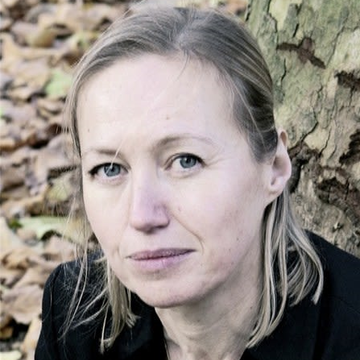Véronique Gouverneur

Professor Véronique Gouverneur FRS
Waynflete Professor of Chemistry
The main research theme in the Gouverneur laboratory is fluorine chemistry.
1. Innovative Fluorine Chemistry To Understand, Diagnose And Cure Diseases
We have an extensive programme aimed at developing novel synthetic methodologies for the preparation of complex fluorinated molecules designed to understand, diagnose and cure diseases. Specifically, 19F-NMR is a valuable tool in fragment-based drug discovery; its applications include screening libraries of fluorinated fragments, studying competition among fragments, and identifying the binding mode of promising hits. Fluorine-substitution is also highly advantageous in pharmaceutical compounds as its presence can dramatically alter chemical and biological properties, including stability, lipophilicity and bioavailability; a recent survey has estimated that as many as 20% of pharmaceuticals contain fluorine. Finally, 18F-labelled molecules have wide applications in Positron Emission Tomography (PET), a molecular imaging technology routinely used in the clinic for diagnosis, and in research laboratories to inform drug development programmes. As natural fluoro-organic compounds are extremely rare, major advances rely heavily on synthetic organic chemistry. Our programme on late stage fluorination aims at enhancing our fundamental understanding of fluoride reactivity, populating the toolbox of reactions available for the synthesis of fluorine-substituted molecules including peptides and proteins, transforming the field of 18F-radiochemistry, and allowing access to 18F-labeled radiotracers enabling PET for diagnostic and drug discovery. Over the years, our research program has closed the gap in innovation between 19F-chemistry and 18F-radiochemistry, with the design of more than forty fluorination reactions including fifteen 18F-radiofluorination processes. Some of our methods are routinely employed to access 18F-radiotracers for PET applications. Our radiochemistry laboratory grew to become a high-in-demand facility for radiotracers production in Oxford. For example, 18F-Olaparib, a new radiotracer prepared applying radiochemistry developed in the group, is taken up for clinical studies. 18F-Olaparib can be used to visualise the biological effects of radiotherapy in cancer patients, determine if the dose of irradiation given to a patient is sufficient to kill the tumour, or if changes are to be made to the therapy plan.
2. Cost-effective Fluorine Chemistry and Bringing Solutions towards Circular Economy
Sustainable chemistry is a necessity that provides great opportunities for the fluorochemical sector. Circular solutions such as fluorochemical recycling or repurposing will have an overall positive impact on the environment over their full life cycle. This research theme requires innovative solutions to challenging problems including harnessing fluoride reactivity, or recycling/repurposing fluorinated polymers and other bulk fluorine-containing materials produced at an industrial scale. A recent research highlight includes the development of a new class of bio-inspired urea organocatalysts for enantioselective fluorination with metal alkali fluoride such as KF and CsF, the safest and most cost-effective fluorine source. These catalysts are now commercially available.
Associated Research Themes:
Energy and sustainable chemistry
Véronique Gouverneur obtained a PhD in chemistry at the Université Catholique de Louvain (LLN, Belgium), under the supervision of Prof Ghosez. In 1992, she moved to a postdoctoral position with Prof. Lerner at the Scripps Research Institute (California, USA). She took a position of Maître de Conférence at the University Louis Pasteur in Strasbourg (France); during this period, she worked with Dr Mioskowski and was Associate Member of the “Institut de Science et d'Ingénierie Supramoléculaires” led by Prof Lehn. Véronique started her independent research career at the University of Oxford in 1998 in the Department of Chemistry and was promoted to Professor of Chemistry in 2008. From 1998 to 2022, she was the holder of a tutorial fellowship at Merton College Oxford where she taught organic chemistry. In 2022, she became the Waynflete Professor of Chemistry.
She has coordinated European ITN projects (FP7-PEOPLE-2012-ITN, RADIOMI and H2020-MSCA-ITN-2016, FLUDD), and is the holder of two ERC Advanced Grants (2018 and 2023). She is the (co)author of > 220 peer-reviewed publications and 10 patents. Her research has been disseminated at numerous conferences, and rewarded by numerous prizes and distinctions including the Royal Society Wolfson Research Merit award (2013-2018), the ACS Award for Creative work in Fluorine Chemistry 2015, the RSC Tilden Prize 2016, the Tetrahedron Chair 2016, the Prelog Medal 2019, the RSC Organic Stereochemistry Award 2019, the Henri Moissan Prize 2021, the Arthur C. Cope Award 2022 , the EuChemS Female Organic Chemist of the Year Award 2022, the Prous Institute - Overton and Meyer Award for New Technologies in Drug Discovery 2024, and the Davy Medal 2024. Véronique was elected Member of the European Academy of Sciences (EURASC) in 2017, Fellow of the Royal Society in 2019 and International Honorary Member of the American Academy of Arts and Sciences in 2022.




